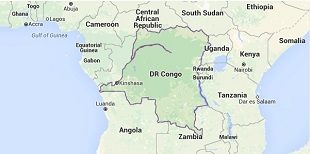
Fixed fuels
New power plants will roughly double the African continent’s total electricity capacity — the maximum possible energy that all of the plants could generate if running under ideal conditions — over the next decade, increasing from about 244 gigawatts in 2019 to 472 gigawatts in 2030, according to a new study. Predicted capacity in 2030 is based on how many new plants are in the pipeline minus those that will be retired by 2030 as well as those that the study predicts are likely to fail.
As of October 2019, wind and solar energy capacity was only about 4 percent. By 2030, 17 percent of the energy capacity will come from wind and solar power — though actual power generation from these renewables is expected to produce less than 10 percent of the continent’s electricity. Meanwhile, 62% of the energy capacity will come from fossil fuels, including coal and natural gas, and another 17% from hydroelectric power. Other planned energy sources include biomass and geothermal technologies.
The findings were “both quite surprising and unsurprising to me,” says Wikus Kruger, a researcher in the African power sector at the University of Cape Town in South Africa who was not involved in the new study. The finding that project-level factors, particularly financing, are very significant tracks with research he and others have done, he says. But, he says, he is less convinced that the decreasing cost of renewables won’t be a bigger factor.
“We are seeing this massive disruption (to the energy market), in terms of costs of renewables. It’s just completely changed the way that planning is done. What’s exciting about this disruptive moment is that these smaller renewable energy projects are in conflict states that have historically struggled to get anything done,” Kruger says. “But these are smaller, more modular projects, and people are willing to put smaller amounts (of money) into projects that spread the risks out across a wide variety of countries.”
One other factor that could change the renewable energy outlook, Alova says, is if many of the fossil fuel plants now in the pipeline were to be canceled, what the team calls a “rapid decarbonisation shock.” But that wouldn’t occur just due to a drop in the cost of renewable energy technologies alone.
African countries face a tricky challenge of how to balance socioeconomic development with sustainability. Increasing the share of renewable energy in Africa’s electricity mix “will not happen automatically by some invisible hand,” Trotter says. “It’s something that has to happen from the top, from African governments and the international development community.” The danger, he says, is that once a fossil fuel power plant enters production, it will stay in operation for 20 or 30 years, “so it’s really important not to be locked into these. What is clear from our dataset is that we have to act now; this is not something we can postpone any longer.”
****
 The Independent Uganda: You get the Truth we Pay the Price
The Independent Uganda: You get the Truth we Pay the Price


